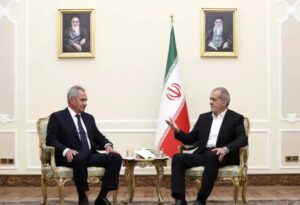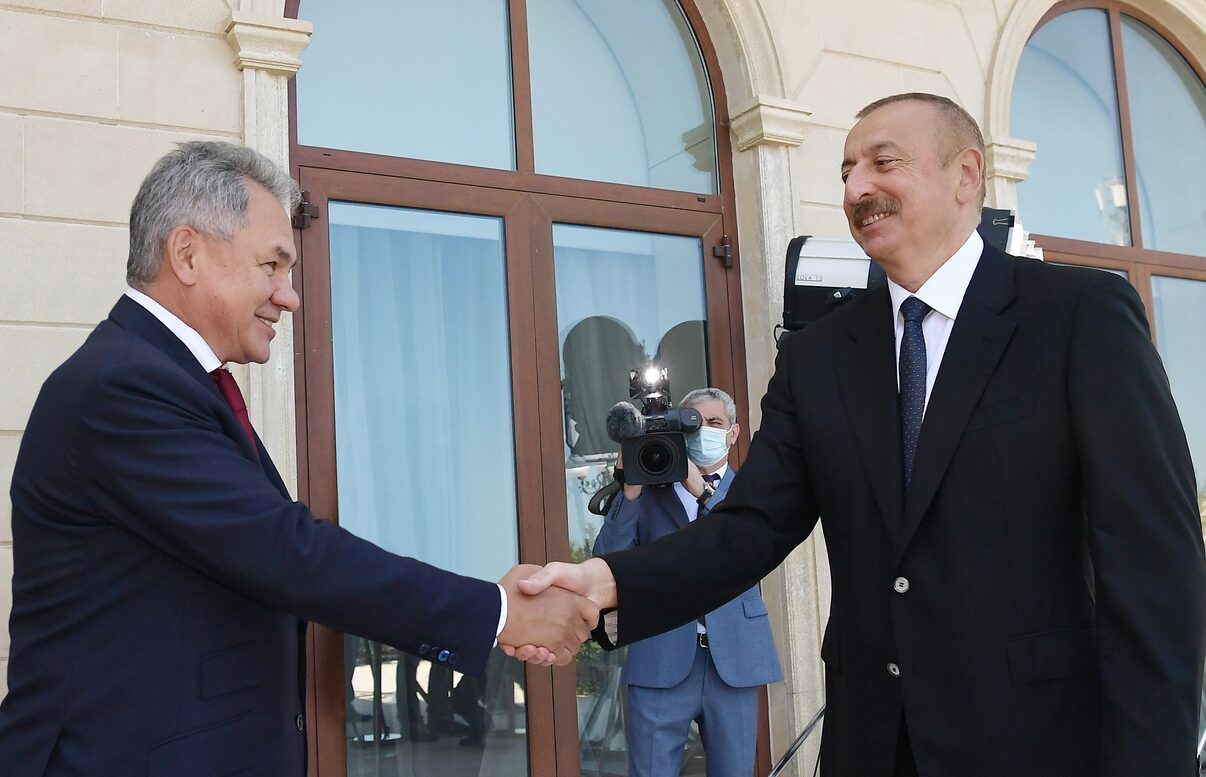
By Akbar Novruz
On August 6, Azerbaijani President Ilham Aliyev met with Sergei Shoigu, Secretary of the Security Council of the Russian Federation. This visit, part of Shoigu’s broader tour including Tehran, quickly drew media attention. Shoigu’s trip to Tehran, which came in the wake of the death of Hamas leader Ismail Haniyeh and amidst rising Israeli-Iranian tensions, and his subsequent visit to Baku, have sparked considerable interest. While the official narrative focuses on strengthening bilateral relations and regional security, the timing and context suggest deeper strategic motives.
Why the Tehran Visit Matters?

One key reason for Shoigu’s visit to Tehran is Russia’s ambition to enhance its influence in the Middle East. By engaging directly with Iranian officials, Russia seeks to position itself as a key mediator in the escalating conflict between Tehran and Tel Aviv. This role could bolster Russia’s standing in the region and safeguard its interests, particularly in Syria, where both Russian and Iranian forces are active. Notably, Russia was diplomatically sidelined from the October 7 Gaza conflict. As tensions in the Middle East escalate, Russia aims to assert its strategic presence and prevent disruptions to its regional plans.
Decoding the surprising Baku visit:

Shoigu’s unexpected visit to Azerbaijan, while brief, should be viewed through a broader geopolitical lens. Several factors underscore its importance – such as Strengthening Ties with Azerbaijan, Regional Mediation Efforts, Strategic Messaging to the West. The Kremlin’s engagement with Azerbaijan amid growing regional conflicts highlights Moscow’s intent to solidify its relationship with Baku. Azerbaijan’s role in the Middle East and its potential as a mediator in the Tehran-Tel Aviv conflict make it a valuable ally. Shoigu’s visit also touched upon ongoing normalization efforts between Russia, Azerbaijan, and Armenia. During the meeting, Shoigu expressed support for these diplomatic efforts and discussed cooperation in the “3+3” format—a regional platform aimed at fostering stability. Russia’s diplomatic moves come as the U.S. and its allies intensify their efforts to address Iran’s nuclear ambitions and bolster military support to Armenia. By engaging with Azerbaijan, Russia signals its continued influence and its role as a central player in regional affairs.
Additionally, the timing of Shoigu’s visits coincides with notable military movements. On August 2 and 3, U.S. military aircraft were detected flying from Romania and the Middle East to Armenia’s Zvartnots airport, shortly after Russian border guards departed the same location on August 1.
As diplomatic dynamics continue to evolve, regional and global actors remain closely attentive. The unfolding developments will reveal whether these geopolitical maneuvers will exacerbate or alleviate tensions in the region. (The author is an International Relations Analyst of Ednews.net, publication under International Eurasia Press Fund)


